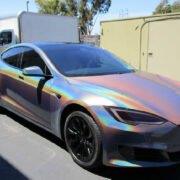At a time when environmental worries and government regulations are changing the way industries work worldwide, the automotive industry is a clear example of an industry at a crossroads. Diesel exhaust fluid, or DEF, has completely changed how diesel engines work today.
Consumers and manufacturers are looking for ways to reduce the harmful effects of car emissions that are good for the environment. DPG Australia is one of the few who considers this top priority, working with innovative solutions.
But as people become more aware of how vital DEF is for eliminating dangerous pollution, an important question arises: Are there different kinds of Diesel Exhaust Fluid?
Even today, there is a lot of discussion around the fact that certain independent DEF blenders listed with the API and adhering to the ISO 22241 criteria do not test every batch and that some packs do not fulfil the high ISO 22241 standards.
Numerous factors can contribute to this, but the primary one is that the urea used is agricultural grade rather than pharmaceutical grade, which has contaminants, including aldehydes and high quantities of biuret, that are detrimental to SCR systems. The other factor that will prevent DEF production is the water quality. With deionised water, DEF can be produced. The fluid won’t fulfil the ISO 22241 requirement if even a few metals or other contaminants are present, harming the SCR system. Elements include calcium, zinc, magnesium, iron, chromium, nickel, sodium, and potassium.
Join us as we go on a journey to figure out how DEF works, from the chemical makeup of its parts to the legal effects of using it. Our goal is to give you the information you need to make decisions about the fluid that not only drives your car but also a greener future.
What Is Diesel Exhaust Fluid (DEF) and How Does it Work?
Even though the idea of DEF may seem simple initially, more research shows a wide range of changes that can significantly impact how well the engine works, how efficiently it works, and how many emissions are reduced.
DEF is made of deionised water and urea. These chemicals help turn nitrogen and water, two everyday things in the air we breathe, into nitrous oxide, a dangerous form of pollution from diesel engines. In a nutshell, DEF is an essential part of the chemical process that keeps harmful fumes from diesel engines out of the environment.
The Environmental Protection Agency (EPA) has set government emission standards for heavy-duty trucks and other equipment, and this fluid is essential to ensure they work within those standards. Because of these things, DEF is a chemical used in nearly all diesel engines today. In selective catalytic reduction (SCR) systems, DEF is the reducing agent in the chemical process.
What Is Diesel Exhaust Fluid (DEF) Used For?
In 2010 the EPA passed the Diesel Pollution Reduction Act (DERA). Since then, diesel engines have used DEF to ensure they don’t pollute too much. Adblue is one type of DEF that has this quality. DEF may become more popular as people learn more about climate change and the need to keep pollution as low as possible. However, high quality Adblue Supply is not unlimited.
Fluids linked to technologies like built-in vehicle monitoring systems are also expected to become more popular. DEF and SCR systems have greatly helped reduce pollution caused by big semi-trucks spilling dangerous chemicals daily.
DEF is used in diesel cars and many other machines, boats, and farm tools. As pollution laws worsened, DEF became used in off-road vehicles, generators, and other engines. Even regular market cars with diesel engines need DEF.
Are they all the same?
At its core, DEF consists of a precise mixture of two fundamental components: high-purity urea and deionised water. This mixture is essential to SCR (Selective Catalytic Reduction) systems. It mixes with nitrogen oxides (NOx) in diesel fumes to turn them into nitrogen and water vapour, which are safe to breathe. But this formula, which seems simple, is quite tricky because of where the parts come from, how pure they are kept, and whether or not there are any extra ingredients.
-
Urea Purity and Sourcing
Urea is a crucial part of DEF, but the purity of urea from different suppliers and makers varies greatly. When put into an SCR system, industrial-grade urea may have impurities that cause dangerous byproducts and reduce efficiency. On the other hand, there are strict purity guidelines for urea used in cars. This ensures that the DEF’s catalytic reactions keep working well and that the process of lowering emissions goes smoothly.
-
Water Quality and Deionisation
Just as crucial to how well DEF works is the quality of the deionised water used to make it. Minerals or other impurities in the water can slow down the chemical reactions in the SCR system. This could poison the catalyst and make it less effective at turning NOx. The water quality must be kept steady through thorough deionisation for the DEF and the vehicle’s emission control system to last and work well.
-
Additive Integration
Aside from the main ingredients, DEF can also be made with additions that make it more stable, last longer, and work better in extreme conditions. These chemicals can stop crystallisation, freezing, and degradation, which keeps the DEF working well and lets cars meet emissions standards regardless of the weather.
-
Regulatory Compliance
As government agencies make rules about emissions more strict, DEF makers must change how they make their goods to meet these new rules. This has led to different DEF models that meet different rules and goals for reducing pollution in other places. So, getting the correct DEF that meets local regulations is the only way to ensure the car is safe and has a small enough effect on the environment.
DPG Australia can provide you with Diesel Exhaust Fluid such as top quality Adblue supply fit for your needs.
Conclusion
Diesel Exhaust Fluid (DEF) is becoming a big part of the future of diesel engines as we try to make movement less harmful to the environment and more eco-friendly. Because of how complicated it is for high-purity urea, deionised water, and special additives to work together, there are a lot of different DEF recipes, and each one is made to meet a different set of needs and rules. As we’ve learned more about the different kinds of DEF, one thing has become clear: not all DEF is the same.
One of the most important things to remember is that you must choose the correct DEF version to meet the rules. As the rules for emissions change and get stricter, the DEF environment also changes to meet these needs. This means that choosing the correct DEF is crucial for getting the most out of the engine and an essential part of staying within the legal limits for emissions.
In a world where caring about the environment and getting better at technology go hand in hand, the different kinds of DEF show how flexible the auto business is. Knowing the differences between DEF types gives you the power to make choices that meet your needs and help the world, whether you’re a manufacturer trying to make engines run more efficiently or a consumer trying to reduce your carbon footprint.
FAQs
- What is Diesel Exhaust Fluid (DEF)?
DEF is a clear liquid used in diesel engines to lower the amount of nitrogen oxides (NOx) released into the air. These emissions can hurt the earth. After the diesel fuel is used up, it is pumped into the waste stream, which mixes with the NOx to make nitrogen and water vapour safe for the environment.
- Do all brands of DEF have the same quality?
No, not all types of DEF are the same answer to your question. Some brands may contain impurities that could hurt your engine or make your guarantee useless. It is crucial to use DEF that meets the guidelines set by the American Petroleum Institute (API).
- What are the signs of bad DEF?
DEF that doesn’t work well might be cloudy or stained and won’t smell very good. It could also have some small pieces of dirt in it. You shouldn’t use the DEF if you see any of these danger signs.
- What happens if I use bad DEF?
If you don’t use DEF correctly, it can hurt your engine and void your guarantee. It’s also possible that the SCR system will fail because of this, leading to more pollution and less fuel efficiency.
- How do I store DEF?
DEF should be kept in places that are cool and dark. It shouldn’t be put in full sunlight or temperatures too high. If DEF is stored correctly, it may work better.
- How often do I need to add DEF?
How often you have to fill up your DEF supply will depend on how long you spend driving and how much DEF your tank can hold. Generally, DEF should be used about every 5,000 to 10,000 miles.












